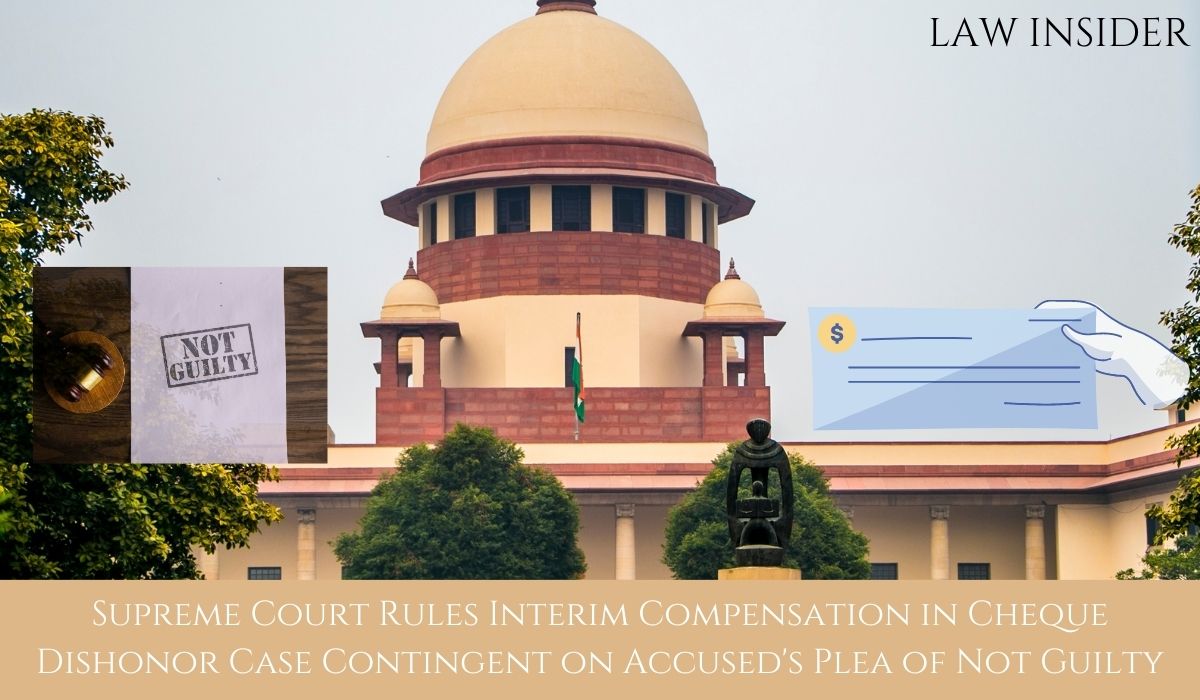LI Network
Published on:18 July 2023 at 14:05 IST
The Supreme Court of India has clarified that interim compensation in cheque dishonour cases under the Negotiable Instruments (NI) Act can only be ordered to be paid after the accused pleads not guilty.
The apex court’s decision aims to strike a balance between protecting the rights of the accused and ensuring the efficient resolution of cheque bounce cases.
The NI Act, which governs cheque dishonour cases, plays a vital role in maintaining trust and confidence in commercial transactions.
Under this law, if a cheque is dishonoured due to insufficient funds or any other reason, the person who issued the cheque becomes liable for the payment.
The Act also provides for the payment of interim compensation to the complainant during the trial process to mitigate their financial loss.
The recent judgment by a bench of the Supreme Court, comprising of honorable justices, establishes a crucial precedent regarding the payment of interim compensation.
The court held that the order for interim compensation can only be issued after the accused pleads not guilty before the trial court.
This ruling emphasizes the presumption of innocence until proven guilty and ensures that the accused’s rights are protected throughout the legal proceedings.
The Supreme Court observed that ordering interim compensation before the accused has pleaded not guilty could potentially infringe upon their right to a fair trial. The court acknowledged that the NI Act provides for the payment of interim compensation to the complainant, but it must be exercised judiciously while safeguarding the interests of both parties involved.
This decision strikes a balance between protecting the rights of the complainant and the accused, as it avoids the possibility of undue hardship to the accused party, especially in cases where they may have a valid defense or their liability is in question. By requiring the accused to enter a plea of not guilty, the court ensures that the trial is conducted fairly and in accordance with the principles of natural justice.

